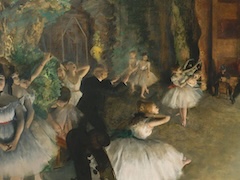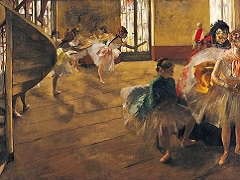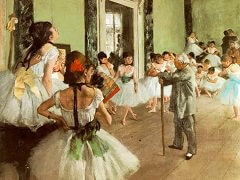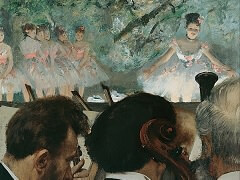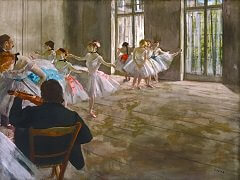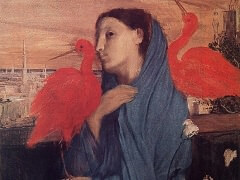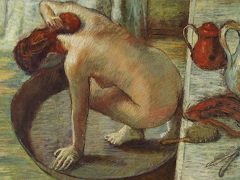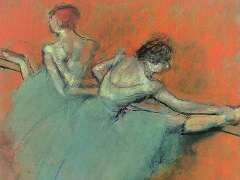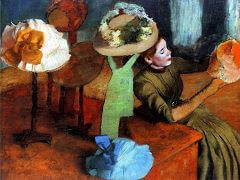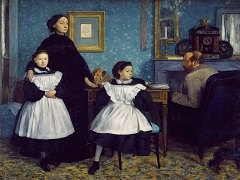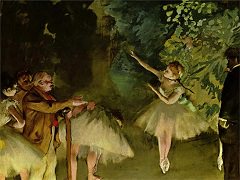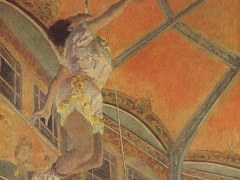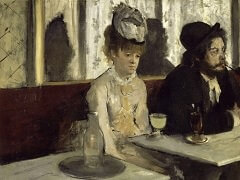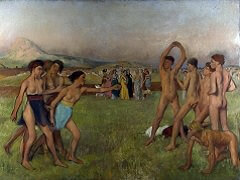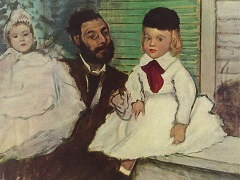Interior, 1868 by Edgar Degas

Interior, also known as The Rape, is an oil painting by Edgar Degas, painted in 1868-1869. Described as "the most puzzling of Degas's major works", it depicts a tense confrontation by lamplight between a man and a partially undressed woman. The theatrical character of the scene has led art historians to seek a literary source for the composition, but none of the sources proposed has met with universal acceptance. Even the painting's title is uncertain; acquaintances of the artist referred to it either as Le Viol or Intérieur, and it was under the latter title that Degas exhibited it for the first time in 1905. The painting is housed in the Philadelphia Museum of Art.
Interior has been described as "the most theatrical of all Degas's compositions of modern life". Art historians have written of the work's "distinctly stage-managed character: items are arranged as if they are props, while the dramatic lighting increases the impression that a play is being enacted ... In addition to the mysterious subject-matter, this stage-like effect is presumably one of the chief reasons why scholars have repeatedly tried to identify a literary source for the painting." Various Naturalist novels have been put forward for consideration. Georges Rivière, a friend of the Impressionists, first suggested Louis Edmond Duranty's novel, the Struggle of Francoise Duquesnoy, as a source; the idea was accepted by R.H. Wilenski and others but found unsatisfactory by Duranty experts. Later, a scene within Émile Zola's Madeleine Férat was identified as matching the elements of Degas's painting in several particulars - but while the narrow bed and the round table corresponded, the position of the figures relative to each other did not.
Degas painted Interior at a time when his growing commitment to Realism had led him away from his earlier preoccupation with historical subjects such as Sémiramis Building Babylon (1860-62), Young Spartans Exercising. Degas referred to the work in 1897 as "mon tableau de genre" ("my genre painting"), which suggests that he considered the painting anomalous among his works.

